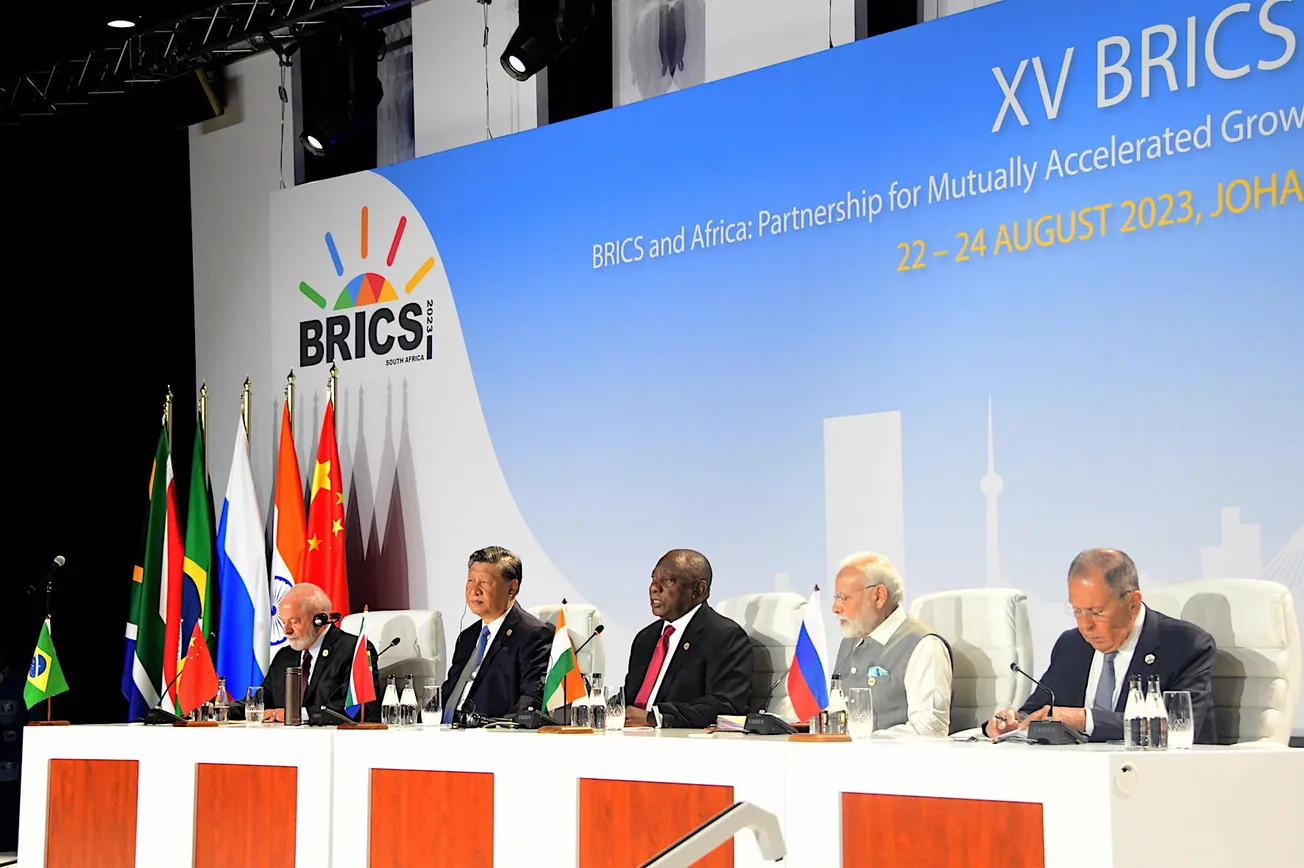March 16, 2024 (EIRNS)—As the debate heats up inside the BRICS over the nature of a possible new BRICS currency as part of a new international financial architecture, a former Senior Economist at the Bank for International Settlements, Herbert Poenisch, who is now a Senior Fellow at Zhejiang University in China, has weighed in on the matter. [Writing in OMFIF](https://www.omfif.org/2024/02/new-brics-members-could-provide-much-needed-vehicle-currency/ which describes itself “an independent think tank for central banking, economic policy and public investment” with “teams in London and the U.S.” Poenisch argues that the BRICS will need a “vehicle currency” for trade and settlement of accounts. “This currency will have to be strong and offer stable relations with the rest of the world—first and foremost the dollar—and be freely convertible.” He argues that “among the new currencies the only ones that meet these criteria are the Saudi riyal and the U.A.E. dirham.”
This kind of free convertibility with the dollar, coupled with floating exchange rates, is the exact opposite of Lyndon LaRouche’s recommendations for the needed new international financial architecture. LaRouche repeatedly explained that fixed exchange rates defended with capital and exchange controls as a firewall against speculative attacks, is what is required, coupled with a new Hamiltonian credit-issuing institution to finance high-technology great infrastructure projects.
Recall that Russia’s BRICS Sherpa Sergei Ryabkov told TASS earlier this week that “a group of experts, led by the ministries of finance and representatives of the central banks of the respective countries,” is working on how to create payment and settlement systems—but not a new BRICS currency—adding that “there are also consultations in other formats, including with the participation of representatives of the `historical West’ who were invited there.” No further details were provided, but the central banks and finance ministries have long been the redoubt of liberal monetarists who are insisting that a link with the speculative dollar be maintained—not to mention “representatives of the historical West.”




